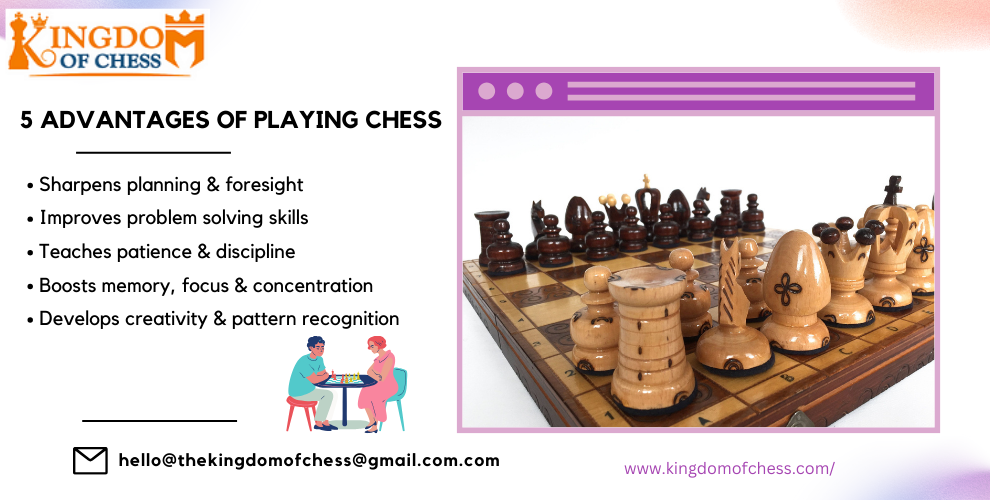Skills to Skyrocket Your Growth in Chess
Chess is a complex game that demands focused chess training – a combination of strategic thinking, forethought, and adaptation developed over regular practice. It’s more than just moving pieces around on a board; it’s a mental battleground where every move counts. Whether you’re a beginner or an intermediate player looking to advance, mastering chess strategy through specific training techniques and endgame skills can help elevate your game. Chess demands diligent study of board tactics, positional advantages, and calculation abilities from both sides. Dedicate time to this cerebral sport through opening preparation, middle game maneuvers, and checkmate patterns to come out victorious in your next match. Comprehensive chess training hones the mental stamina needed in this game of kings and queens.
1. Introduction
Commitment and a disciplined approach are required when embarking on a journey to improve your chess skills. This essay will dissect the important abilities and strategies required to elevate your game and outmanoeuvre opponents.
2. Foundational Chess Skills
Understanding Tactics
In chess, tactics are the foundation of a winning strategy. Familiarising yourself with numerous methods such as forks, pins, skewers, and discovered attacks can drastically impact your gaming. Tactics training activities and puzzles are great ways to develop these skills.
Mastering Openings
Mastering chess openings is similar to laying the foundation for a strong structure. Learning different opening principles, pawn structures, and popular openings can provide a solid foundation for your mid-game strategies.
Endgame Strategies
Precision is especially important in the endgame. Understanding endgame principles like king activity, pawn endgames, and basic checkmating patterns can help you turn your advantage into a win.
3. Advanced Techniques
Positional Understanding
Assessing pawn structures, evaluating piece activity, and recognising key squares are all part of developing a thorough understanding of positional play. It’s all about strategically moving your pieces to control the board’s dynamics.
Calculation Skills
The ability to accurately calculate is critical in evaluating complex situations and making sound decisions. Regular practice calculating variations and visualising positions aids in the development of this skill.
Psychological Edge
Chess is a psychological battle as well as a battle of moves. Understanding your opponent’s thought process, remaining calm under pressure, and inducing errors can all give you a significant advantage.
4. Continuous Improvement
Analyzing Your Games
Analysing your games, especially losses, is critical for development. Identifying flaws, comprehending alternative moves, and learning from your gameplay are all critical steps towards progress.
Seeking Feedback
Seeking feedback from more experienced players or mentors can provide you with valuable insights and perspectives on your game. Constructive criticism assists in identifying blind spots and areas for improvement. You can also take online chess training from the best chess academy as they provide a comprehensive learning environment, catering to various skill levels while promoting cognitive growth and a love for the game.
Utilising Resources
A wealth of resources, such as books, online tutorials, and chess software, are available to help you along the way. Making use of these resources effectively improves your understanding and skills.
Conclusion
Becoming proficient in chess involves a blend of acquiring fundamental skills, refining advanced techniques, and perpetually seeking improvement. By mastering these skills, you can elevate your game and relish the complexities of chess.
Frequently Asked Questions
Improvement varies among individuals based on dedication and practice. Consistent practice and studying can yield noticeable improvement in a few months.
While memorization aids in the early stages, understanding the underlying principles and ideas behind openings is more crucial for long-term growth.
Becoming a grandmaster requires exceptional dedication, talent, and years of rigorous training, making it a challenging feat achievable by only a few.
Psychology plays a significant role in chess, influencing decision-making, handling pressure, and understanding opponent behaviour, contributing to success.
There are no shortcuts to mastery in chess. Consistent practice, learning from mistakes, and a willingness to continuously improve are vital elements in advancing your skills.



